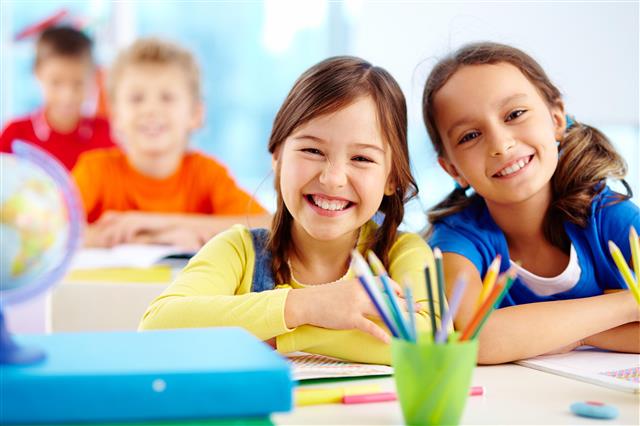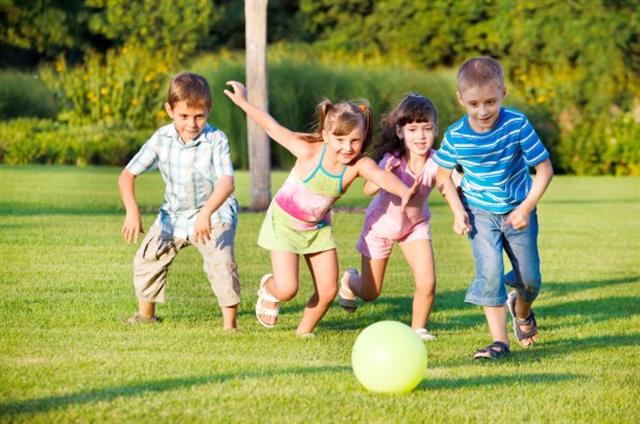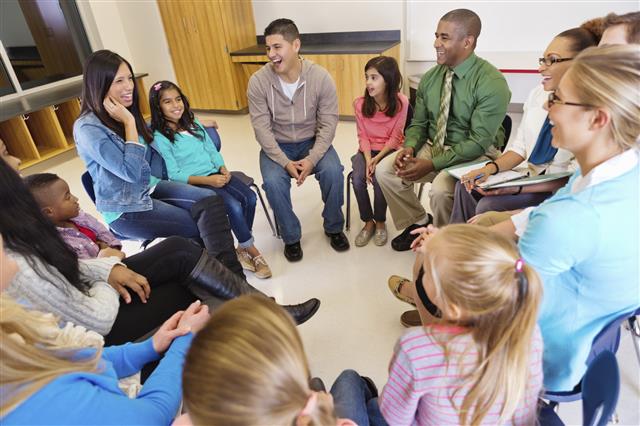SPECIAL THERAPIES CENTER
Olga Triantafyllou | Kassandria Chalkidiki
GROUP PROGRAMS
| School Skills Readiness Groups | ||
|---|---|---|
|
"Triantafillou Olga Special Treatment Center", taking into account the increased demands of the new school environment, organizes student preparation courses for the First Primary School. The program is aimed at students who finish the kindergarten and are preparing to attend the 1st Primary School in the next school year.
The team consists of 6 to 8 children and aims to improve the cognitive skills of children as well as to simulate the rules of the primary school through pleasant activities and games.

In particular it includes the following:
In total, there are 13 sessions and the duration of each meeting is 1.5 hours. Children who are either attending treatment programs or not and simply wish to be better prepared for the new primary environment and to enhance their skills can participate. Group programs work side by side, integrating the child into a group and generalizing their skills beyond the one-to-one environment. Each child who will participate in the group will be provided free of charge with an assessment of their abilities before the start of the program by the responsible speech therapist and a meeting with parents with the psychologist of the center.
|
||
| Social Skills Groups | ||

Learning social skills is one of the challenges that parents are called to face each day. Many times children want to interact with their peers, but they do not always know the way.
WHAT IS IT
Social skills relate to the child's ability to create and maintain satisfactory relationships in his or her life depending on the stage of development. The absence or lack of these skills can lead to isolation, school failure and the avoidance of synergies of new relationships.
PURPOSE OF THE GROUP
Through the social skills groups, children have the opportunity to practice creative play and group exercise through:
// Discussion Skills - Verbal Communication
How to start a conversation, stay relevant to the subject, keep my listener's interest, wait for my turn
// Body Language - Non-verbal communication
External appearance and recognition / use of facial expressions, gestures, posture and eye contact.
// Collaboration and Teamwork
To become a member of a group, to share, to cooperate, to follow rules, to accept diversity, to make decisions, to build my identity, to face competition.
// Expression of emotions
To recognize my feelings and to talk about them, to understand the emotional position of another and to maintain my self-control.
// Solving problems and conflicts
To acknowledge their problems and their consequences, to think before I act, to collaborate on problem solving in groups, to apologize, to compromise on dispute resolution, to negotiate, to manage anger, competition and defeat.
// Accuracy
I feel good about myself and defend it by supporting my opinion by proposing ideas, saying no, asking for explanations, recognizing my rights and obligations.
Social skills groups are 2 for ages 6-8 and 8-12. In total, there are 10 sessions and the duration of each meeting is 1.5 hours.
Each child who will participate in the group will be provided free of charge with an assessment of their abilities before the start of the program by the responsible speech therapist and a meeting with parents with the psychologist of the center.
|
||
| Spelling Workshop | ||
|
Children mainly in elementary school present some weaknesses in spelling. They struggle to remember the spelling of words, both final and thematic, even if they have been systematically taught. They can make mistakes even in words they know or in endings that are very familiar to them. Traditional teaching can help them to some extent manage the grammar rules that relate to the endings of words, but ...
What about the historical Spelling, which is not based on rules?
How can we effectively teach a child with learning difficulties? The usual technique followed by teachers and parents, asking for multiple copying of the word, will prove to help a lot. These children often have reduced automation and / or limited short or long-term memory. It is therefore desirable to learn through more visualized and memorable ways of intervention. One such way is the Illustrative Method of Teaching Orthography.
  The Illustrative Method offers students with spelling difficulties the ability to memorize the spelling of words easily, quickly and without uninterrupted reps. With this method, the "difficult" letters of each word are converted into drawings, which are closely related to the semantic content of the word. It is easier to retain an image than remembering the spelling of a word in their memory. This facilitates the transition from short to long-term memory.
Instead, so as to constantly correct our children's writings, ask them to write the word 5 times, to abort the same and not to write, we can give them the ability to learn through the pictures. This is the purpose of organizing the Lab, to offer a different and pleasant way of learning the spelling.
The first round of the Workshop includes 10 meetings with continuity in the 2nd cycle in the new year. The duration of each meeting is 1.5 hours and the number of people 4-6.
Each child who will participate in the group will be provided free of charge with an assessment of their abilities before the start of the program by the responsible speech therapist and a meeting with parents with the psychologist of the center.
|
||
| Parent Groups | ||

Parent groups are not only targeted at parents who believe that relationships with children are dysfunctional, but also parents who want to share thoughts, feelings, concerns to learn to enjoy their role without being endangered by constant anxiety, fear and guilt that they are not the "perfect" parents.
In parents' groups, through experiential learning, ie learning with music, imagination, healing play, physical movement, free speech, the parent comes in contact with his original feelings and creativity and discovers new ways of communicating with the child. This is not alone. It finds support for a group of people who share the same or different concerns and experiences but share a common purpose: to search for and select the way of communication that suits everyone.
In parents' groups the topics that are being negotiated relate to the daily routine of the family, such as:
Parents' groups may be open or closed, have a fixed duration and subject matter and are addressed to all parents who wish to come in contact with themselves and develop their identity as parents. Open groups of parents can participate, whichever one wishes, enough to make a timely participation. Closed parent groups are made once a week, lasting from 2 to 4 months, and up to 8 people can participate. The groups are governed by the principles of confidentiality and acceptance, sense of mutual understanding and respect for diversity. Authenticity, honesty and trust between members and the coordinator are a prerequisite for the creative exchange of thoughts and experiences.
|

